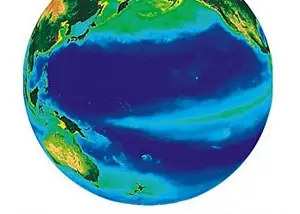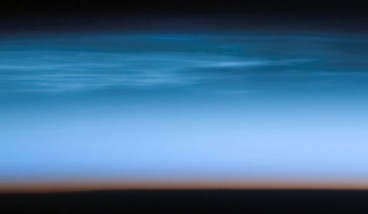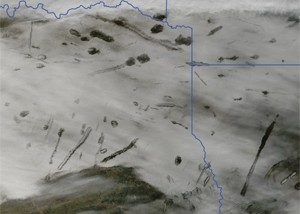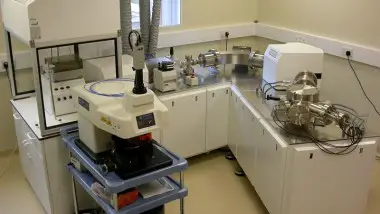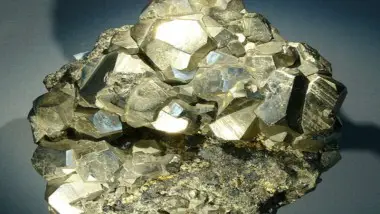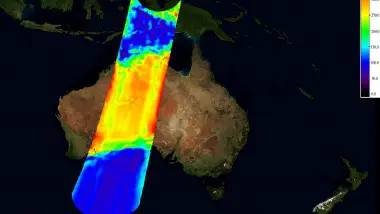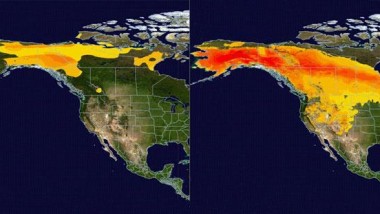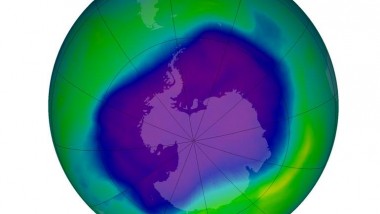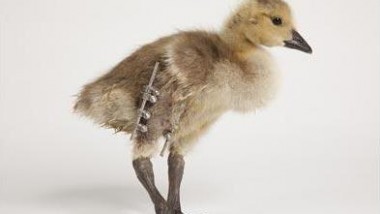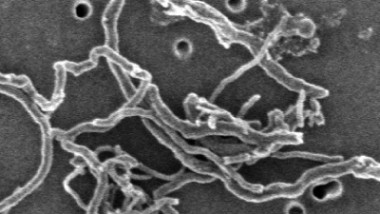Researchers at the Massachusetts Institute of Technology in Cambridge, Massachusetts and at the National Oceanic and Atmospheric Administration’s Geophysical Fluid Dynamics Laboratory in Princeton, New Jersey discovered a correlation between the color of ocean water and the paths taken by ...
The Aerosol Conundrum
Scientists from the Massachusetts Institute of Technology have recently discovered a new reason for Earth’s warming. Apparently, aerosols are not only responsible for Earth’s cooling, but they make our planet warmer. Since human activity partially creates these particles, the new ...
Explaining Hole-Punch Clouds
Researchers at the National Center for Atmospheric Research (NCAR) in Boulder, Colorado have discovered how airplanes create hole-punch clouds when flying under specific atmospheric conditions and how their creation can temporarily change local weather conditions. These clouds – so called ...
Earth’s Atmosphere Came From Outer Space
A joint team of researchers, from the University of Manchester and the University of Houston, has discovered that the gases which formed the Earth’s atmosphere and its oceans probably come from outer space. Their recently published report challenges traditional theories ...
Fool’s Gold in Solar Cells
Scientists at the University of California at Berkeley are developing new solar cells based on pyrite, otherwise known as fool’s gold. Fool’s gold is four or five times more plentiful than the silicon most commonly used in solar cells and ...
Images from SMOS Arrive
The first callibrated images from the European Space Agency’s Soil Moisture and Ocean Salinity (SMOS) Satellite are available less than four months from the satellite’s launch. As the mission name implies, these images provide information on global soil moisture and ...
Rate of Ecoshift in a Period of Climate Change
Scientists from several major research institutions have determined that, on average, ecosystems must shift 0.42 kilometers (approximately half of a mile) each year to keep pace with current climate changes. The shifts are projected to be greatest in dry, arid ...
The Ozone Layer
Where the ozone goes, everyone knows. This is thanks, in part, to two instruments onboard the Aura satellite that track ozone in our atmosphere: the Ozone Monitoring Instrument (OMI) and the Microwave Limb Sounder (MLS). The ozone layer protects life ...
The World’s First Bionic Goose
Not quite the object of science-fiction movies, but futuristic nonetheless – we present you the world’s first bionic goose. In a first operation of its kind, vets in the UK have fitted a two-week old gosling with a bionic leg. ...
Carbon Nanotubes Dangerous to the Environment
Scientists from the research center Forschungszentrum Dresden-Rossendorf (FZD) have discovered worrying properties of carbon nanotubes, which indicate that nanotube production may be dangerous to the environment. Their discovery, they say, may halt an otherwise diverse and fertile research area. Atomic ...

